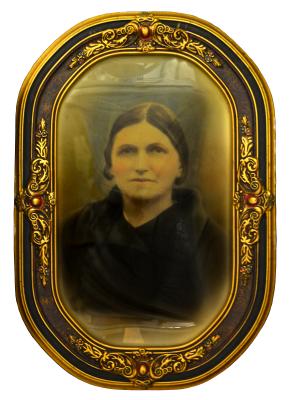FAN FOLDING TYPE
1930 - 1970Black square metal container which folds out to reveal a paper fan inside. The metal container forms the handle when fully opened and the fan forms a full circle of folded paper atop of the handle.
The fan is pink on the outer edge, fading to light green in the centre. It has a flower design on the front and a plain back.
The container is in poor condition and one side of the fan has come away from the handle.
One of the items collected by Kim Fletcher from 15 William Street Armadale in an old tin trunk.
The folding fan is believed to have been developed in Japan during the 6th century C.E. Over the next five hundred years it spread across parts of Asia including China. In the 1500s regular trade between Europe and China started and the folding fan was introduced to Europe. The fan quickly became a highly sought after ornate and expensive fashion accessory for women in European royal courts. In the 1700s the fan was no longer the exclusive property of the elite. Mass produced cheap fans became available, made in Europe and China. At the start of the 1800s the fan fell out of fashion. In the 1820s the fan came back into fashion and was often designed to match or from the same fabric as the dress. Many fans from this period were large and highly decorated with romantic scenes from the 17th and 18th centuries.
In the 1900s fans remained in fashion but they became smaller and more delicate to match the changing fashion. The fan also became restricted to use with evening wear. By the 1920s though the fan was once again out of fashion. Fans were something for older women to use or were used as part of advertising campaigns. Through Asia fans remained popular during this time and continue to be popular today.
Details
Details
This collection of objects from 15 William Street Armadale was collected to provide a snapshot of everyday items that were in a Armadale home in the from the early 1930s through to the 1970s. The collection was used by Miss Ivy 'Milly' Millicent Rowe who lived in the home from c1932-1970.


